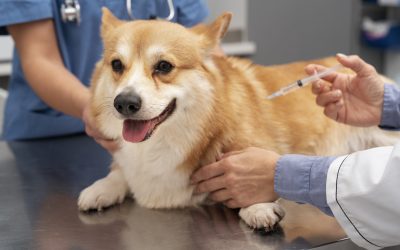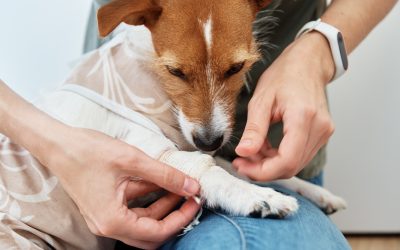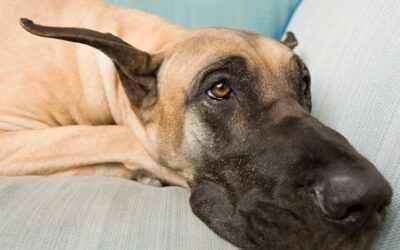Dog Diarrhea With Mucus [Causes & Solutions]
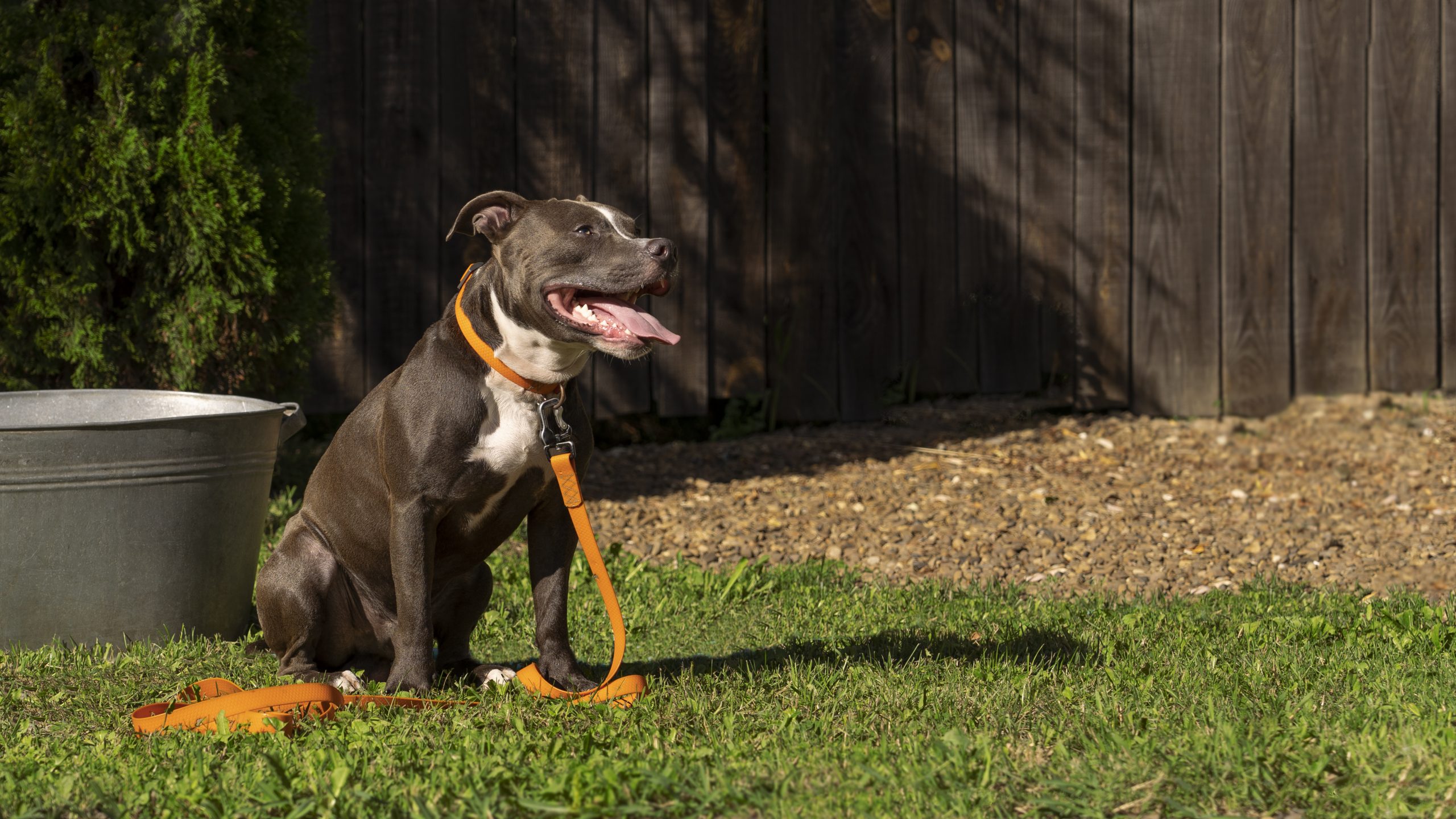
As a pet owner, it can be distressing to see your beloved furry friend suffering from diarrhea with mucus. This condition, characterized by loose stools accompanied by a slimy discharge, is not uncommon in dogs. Understanding the causes and solutions for dog diarrhea with mucus can help you better care for your four-legged companion.
Dog diarrhea with mucus can be caused by various factors. One common cause is dietary indiscretion, which occurs when dogs consume something they shouldn’t, such as spoiled food or garbage. This can irritate the digestive system and lead to loose stools with mucus. Another possible cause is a bacterial or viral infection, which can result in inflammation of the intestines and the production of excess mucus. Additionally, certain medical conditions, such as gastrointestinal parasites or food allergies, can contribute to diarrhea.
Causes of dog diarrhea with mucus
- Dietary indiscretion: Dogs are notorious for their curious nature and tendency to eat things they shouldn’t. Consuming spoiled food or garbage can lead to gastrointestinal upset, resulting in diarrhea with mucus.
- Bacterial or viral infections: Infections caused by bacteria or viruses can inflame the intestines, leading to the production of excess mucus. Common culprits include Salmonella, Campylobacter, and Parvovirus.
- Gastrointestinal parasites: Parasites such as Giardia or worms can disrupt the normal functioning of the digestive system, leading to diarrhea with mucus.
- Food allergies or intolerances: Just like humans, dogs can develop allergies or sensitivities to certain foods. These allergic reactions can cause gastrointestinal symptoms, including diarrhea with mucus.
Common symptoms of dog diarrhea with mucus

When your dog experiences diarrhea with mucus, several additional symptoms should be watched out for. These symptoms can help you determine the severity of the condition and whether a visit to the veterinarian is necessary.
- Abdominal discomfort: Dogs with diarrhea may exhibit signs of abdominal discomfort, such as bloating, cramping, or restlessness.
- Loss of appetite: Diarrhea can cause dogs to lose their appetite or have a reduced interest in food.
- Vomiting: In more severe cases, dogs may also experience vomiting along with diarrhea and mucus.
When to see a veterinarian
While mild cases of dog diarrhea with mucus can often be managed at home, there are instances when it is crucial to seek veterinary care.
- Persistent or worsening symptoms: If your dog’s condition persists for more than 24 hours or becomes progressively worse, it is important to consult a veterinarian. This could indicate a more serious underlying condition that requires medical intervention.
- Dehydration: Diarrhea can lead to dehydration, which can be dangerous for dogs. If your dog is showing signs of dehydration, such as excessive thirst, dry gums, or lethargy, seek immediate veterinary attention.
- Blood in the stool: The presence of blood in the stool is a red flag and should never be ignored. It can indicate a severe infection or a more serious condition, such as gastrointestinal bleeding.
- Pre-existing medical conditions: If your dog has pre-existing medical conditions, such as a compromised immune system or a history of gastrointestinal issues, it is best to consult a veterinarian for guidance.
Treating dog diarrhea with mucus at home
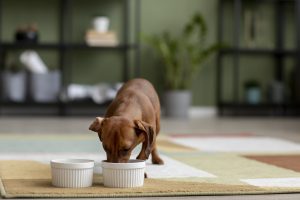
In mild cases of dog diarrhea with mucus, you can try some home remedies to alleviate the symptoms and help your furry friend feel better.
- Withhold food: Temporarily withholding food for 12 to 24 hours can give the digestive system a chance to rest and recover. Make sure to provide plenty of fresh water to prevent dehydration.
- Offer a bland diet: After the fasting period, gradually reintroduce a bland diet consisting of boiled white rice and boiled chicken. You can also try offering your dog plain pureed pumpkin. This gentle diet can help soothe the irritated digestive system.
- Probiotics: Adding a high-quality probiotic supplement to your dog’s diet can help restore the balance of good bacteria in the gut and promote healthy digestion.
- Hydration: Ensure your dog has access to clean, fresh water at all times to prevent dehydration. You can also offer an electrolyte solution to replenish lost fluids and essential minerals.
Dietary changes to alleviate dog diarrhea with mucus
As part of the treatment plan for dog diarrhea with mucus, dietary changes can play a crucial role in alleviating symptoms and preventing future episodes.
- Easily digestible foods: Opt for easily digestible foods such as boiled chicken, low-fat plain yogurt, or pumpkin puree. These foods are gentle on the stomach and can help firm up stools.
- Limited-ingredient diet: If your dog has a known food allergy or intolerance, consider switching to a limited-ingredient diet that avoids the problematic ingredients. This can help reduce the likelihood of diarrhea and mucus.
- Avoid table scraps: Human food, especially fatty or spicy dishes, can trigger gastrointestinal upset in dogs. It is best to avoid feeding your dog table scraps and stick to a balanced, canine-specific diet.
- Gradual diet transitions: Introduce new foods or switch to a different diet gradually over several days. Sudden dietary changes can disrupt the digestive system and lead to diarrhea.
Preventing dog diarrhea with mucus
While it may not be possible to prevent dog diarrhea with mucus entirely, you can take steps to minimize the risk and keep your dog healthy.
- Proper nutrition: Feed your dog a balanced diet that meets their nutritional needs. High-quality dog food can support healthy digestion and reduce the likelihood of gastrointestinal upset.
- Avoid dietary indiscretion: Keep a close eye on your dog and prevent them from eating anything they shouldn’t, such as garbage or toxic plants.
- Regular veterinary check-ups: Regular veterinary check-ups can help identify any underlying health issues early on and prevent them from escalating into more serious conditions.
- Good hygiene practices: Wash your hands thoroughly after handling your dog’s waste or providing them with meals. This can help prevent the transmission of bacteria or parasites.
How can pet insurance help you in this situation?
Having pet insurance can provide financial peace of mind in situations where veterinary care is necessary for dog diarrhea with mucus. Pet insurance can help cover the costs of diagnostic tests, medications, and treatments, allowing you to focus on providing the best possible care for your furry friend without worrying about the expenses.
What about the claims process for pet insurance?
When looking into pet insurance, understand the claims and payment process.
Reimbursement
This method is the most common for pet insurance companies. You pay out of pocket for the veterinarian bill, and then the insurance company reimburses you for what’s covered under the insurance plan. The steps look like this.
- You pay the vet bill after your dog’s visit.
- You fill out the pet insurance claim form.
- Submit the claim form and other required documentation to the insurer.
- After the claim is approved, you will be reimbursed for eligible expenses.
Odie’s Illness and Injury pet health insurance plan offers comprehensive coverage for your dog.
Odie’s Pet Insurance Plans
Illness & Injury Plan
This insurance plan is Odie’s most comprehensive plan covering illness and injuries your dog may incur. This plan covers
Accident-Only Plan
Odie’s Accident-Only Plan covers wounds, injuries, and vet treatments, including X-rays, Ultrasounds, tests, and emergency care your sweet pet might need if they accidentally get injured.
Wellness Plan
This add-on plan guarantees you can keep your dog up to date on their vaccinations, heartworm checks, and other routine checks.

